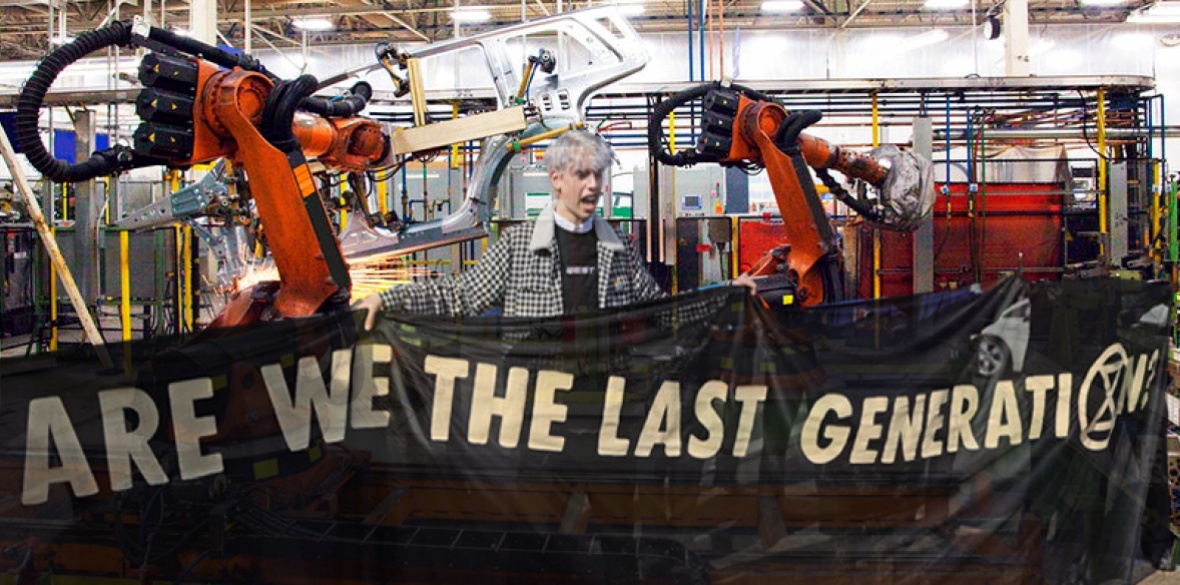This is the last article you can read this month
You can read more article this month
You can read more articles this month
Sorry your limit is up for this month
Reset on:
Please help support the Morning Star by subscribing here
IN 2019 Raynold Wonder Alorse published “The digital economy’s environmental footprint is threatening the planet” relaying information from his working paper, The Digital Economy and the Green Economy: Compatible Agendas?
Alorse’s work is far from hyperbole as he points to what many ecologists have been saying for years: that there are critical blind spots in the desire to believe that the digital economy is compatible with a green economy. If anything, they are antagonistic to each other.
Not only do our smartphones rely on metals that exploit both the planet and child labourers in various countries, but cloud computing, data centres, cryptocurrencies and artificial intelligence are largely powered by electricity sourced from coal.
Alorse contends that “the digital economy and green economy will be incompatible with each other and could lead to more greenhouse gas emissions, accelerate climate change and pose great threats to humanity,” a claim that many scientists have already proven.
And if e-waste (electronic waste) is now accounting for 2 per cent of solid waste and 70 per cent of toxic waste in the US, then what are the solutions for reducing pollution while maintaining a certain technological sustainability?
Certainly, the rise of internet use for both professional and personal ends has created its own economic market, as today more and more workers are telecommuting or working from home, where many are changing how they spend their leisure time and conduct their business travel conscious of the ecological perils of aeroplanes.
Indeed more and more people are engaging in sales through online forums and company websites where they can make inquiries or direct purchases of everything from LED screens to clothing.
One would think that such consciousness-raising over the past decade on the carbon footprint of transport, greenhouse emissions and rising ocean levels would be enough to shock people into the most eco-friendly habits.
But as we commonly see through the many cloud platforms and burgeoning tech products being released daily into the tech market, the ecological repercussions of these products and consumer markets are downplayed by industry.
Certainly, by working from home or refusing to use aeroplanes where train travel is possible, we are definitely reducing our carbon footprint. But so much of what the internet economy invokes involves quite a bit more harm to the environment — namely online sales which require shipping.
Amazon’s Black Friday sale last autumn caused untold problems for the environment, which sparked dozens of protests around the US as environmental activists decried the annual shopping extravaganza which has New York City alone handling over 1.5 million packages a day — and 15 per cent of New York City homes already receive at least one delivery on an average day.
The increased traffic also has a knock-on effect, as this creates congestion and increases pollution all the more when you factor in the many other automobiles on the road caught up in the delivery service morass.
Aside from air pollution, public infrastructures are being weakened and private industry is not being held to account for newer problems created as a result of daily delivery services.
And the US is not alone in facing this problem — China’s Alibaba is under similar pressure to improve the company’s environmental impact. Like Amazon’s Black Friday, China’s big sale day on November 11 — “Single’s Day” — promotes consumption and distracts from the necessary conversations that we ought to be having about valuing life and materialism.
While it is perfectly lovely to have the option to take online university courses, the reality is that many of us reach for Amazon or similar when it comes to buying items and having them shipped to your door immediately. We cannot heal the planet by taking two steps forward and another six backward.
So, how to bring the digital economy in line with the green economy? Alorse suggests that in order to resolve this problem “we must also consider collective problem-solving by bringing together diverse perspectives from both the Global North and the Global South,” suggesting that we “frame issues about the digital economy and its environmental impact in broad societal terms.”
Certainly these are viable and logical questions, but unless we move to an eco-economy and seek out new scientific and social models in bringing the planet back from the brink of ecological disaster, we will fundamentally change very little, if anything at all.










